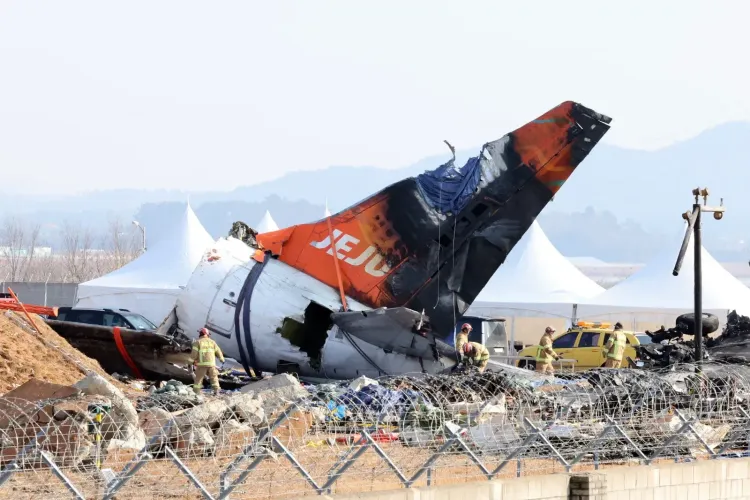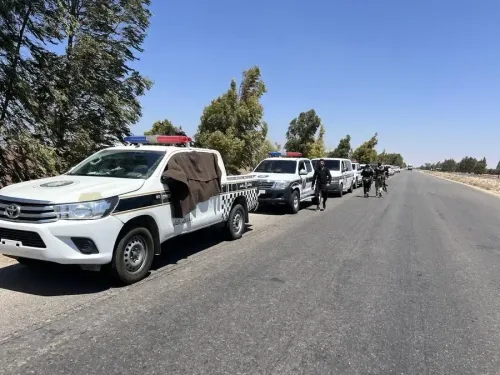Jeju Air Flight Received Bird Strike Alert Just Before Black Box Stopped

Synopsis
Key Takeaways
- Jeju Air plane crashed on December 29.
- Received a bird activity warning shortly before black box stopped.
- 179 fatalities and two survivors.
- Investigation findings were shared with victim's families.
- Flight data analysis will take several months.
Seoul, Jan 25 (NationPress) The tragic Jeju Air aircraft involved in the crash last month was alerted by air traffic control regarding bird activity merely one minute before its black box ceased recording, as reported by the South Korean transport ministry on Saturday.
In a briefing to the families of the victims, the ministry revealed preliminary insights from its investigation into the deadly incident involving the low-cost carrier, which originated from Bangkok and resulted in the loss of 179 lives and left two survivors in Muan, located in South Korea's southwestern region on December 29 of the previous year.
The government is set to publish the preliminary report by Monday, which will also be forwarded to the International Civil Aviation Organisation, along with authorities from the United States, France, and Thailand, according to the ministry.
The investigation committee noted that video surveillance from Muan International Airport during the incident confirmed that the aircraft attempted a go-around just before colliding with a flock of birds.
The plane first contacted the air traffic control tower at 8:54:43 am while approaching for landing. The control tower granted it permission to land on Runway 01, which was in the opposite direction of where the accident occurred.
At 8:57:50 am, the control tower warned the plane of a possible bird strike. At 8:58:11 am, the captain and first officer discussed a flock of birds that were beneath the aircraft.
The recording appears to have stopped at 8:58:50 am, indicating that the aircraft likely lost power after both engines were shut down due to the bird strikes.
Feathers and blood, believed to be from a species of winter migratory ducks, were discovered on both engines, the ministry reported.
The pilot is thought to have issued a mayday distress call at 8:58:56 am, although this is an estimate based on synchronization with control tower records, as no recording of the call exists in the black box.
The plane flew for approximately four minutes before attempting to land in the opposite direction without deploying the landing gear, ultimately colliding with a concrete localizer mound and igniting in flames at 9:02:57 am.
The ministry stated that it would require several months to analyze the flight data and cockpit voice recordings for further verification, as reported by Yonhap news agency.
Meanwhile, the group representing the families of the victims announced that it has decided to cease the search for remains at the crash site.
Authorities have dispatched the remains recovered from the area to the national forensics institute for identification.










